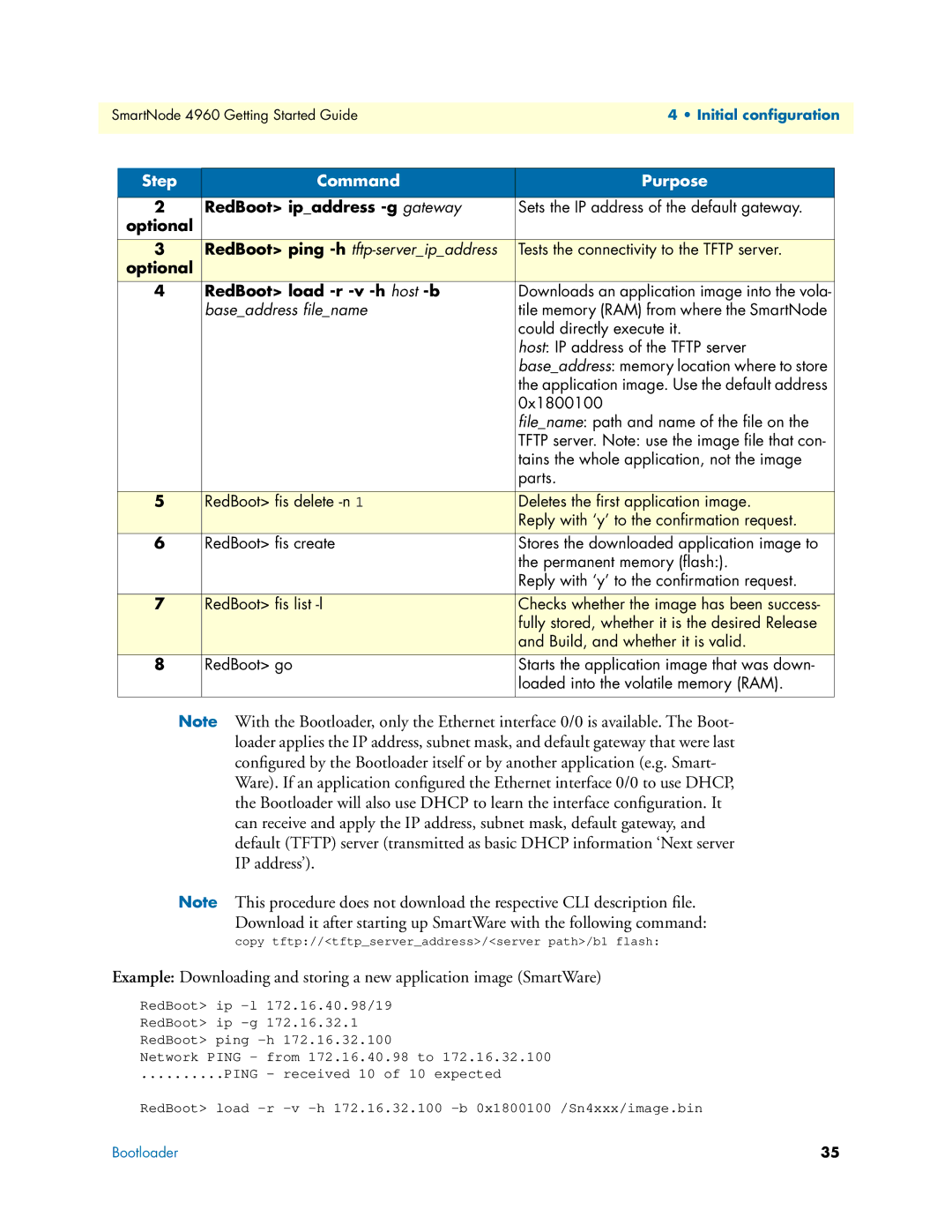
SmartNode 4960 Getting Started Guide4 • Initial configuration
Step | Command | Purpose |
|
|
|
2 | RedBoot> ip_address | Sets the IP address of the default gateway. |
optional |
|
|
|
|
|
3 | RedBoot> ping | Tests the connectivity to the TFTP server. |
optional |
|
|
|
|
|
4 | RedBoot> load | Downloads an application image into the vola- |
| base_address file_name | tile memory (RAM) from where the SmartNode |
|
| could directly execute it. |
|
| host: IP address of the TFTP server |
|
| base_address: memory location where to store |
|
| the application image. Use the default address |
|
| 0x1800100 |
|
| file_name: path and name of the file on the |
|
| TFTP server. Note: use the image file that con- |
|
| tains the whole application, not the image |
|
| parts. |
|
|
|
5 | RedBoot> fis delete | Deletes the first application image. |
|
| Reply with ‘y’ to the confirmation request. |
|
|
|
6 | RedBoot> fis create | Stores the downloaded application image to |
|
| the permanent memory (flash:). |
|
| Reply with ‘y’ to the confirmation request. |
|
|
|
7 | RedBoot> fis list | Checks whether the image has been success- |
|
| fully stored, whether it is the desired Release |
|
| and Build, and whether it is valid. |
|
|
|
8 | RedBoot> go | Starts the application image that was down- |
|
| loaded into the volatile memory (RAM). |
|
|
|
Note With the Bootloader, only the Ethernet interface 0/0 is available. The Boot- loader applies the IP address, subnet mask, and default gateway that were last configured by the Bootloader itself or by another application (e.g. Smart- Ware). If an application configured the Ethernet interface 0/0 to use DHCP, the Bootloader will also use DHCP to learn the interface configuration. It can receive and apply the IP address, subnet mask, default gateway, and default (TFTP) server (transmitted as basic DHCP information ‘Next server IP address’).
Note This procedure does not download the respective CLI description file.
Download it after starting up SmartWare with the following command:
copy tftp://<tftp_server_address>/<server path>/b1 flash:
Example: Downloading and storing a new application image (SmartWare)
RedBoot> ip
Network PING - from 172.16.40.98 to 172.16.32.100
..........PING - received 10 of 10 expected
RedBoot> load
Bootloader | 35 |
